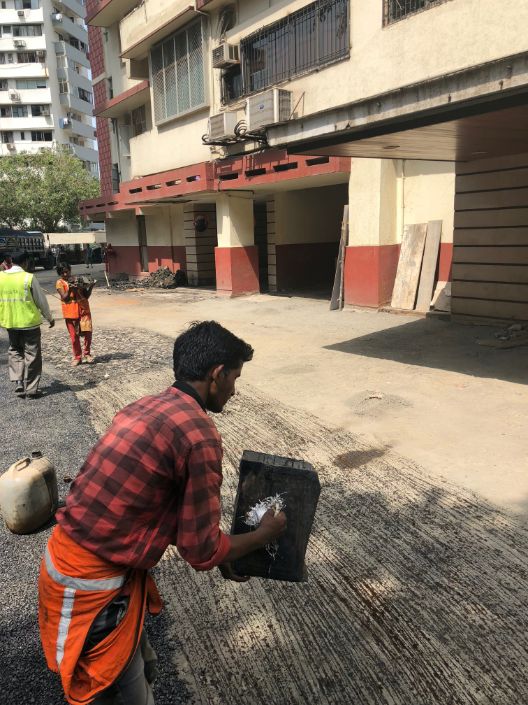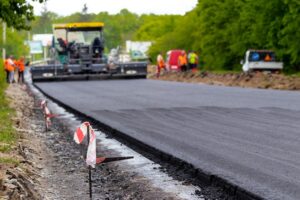How to Choose the Right Road Construction Materials for Your Project
When it comes to constructing a road, choosing the right materials is crucial for the success and longevity of the project. The materials used will impact the road’s durability, maintenance requirements, and overall cost. With so many options available, it can be challenging to determine which materials are best suited for your specific project. This blog post will provide a comprehensive guide on how to choose the right road construction materials. We will discuss the factors to consider, the types of materials available, their pros and cons, and tips for making an informed decision. By the end of this post, you will have a better understanding of the critical considerations when selecting road construction materials and how to choose the right materials for your project.
Factors to Consider When Choosing Road Construction Materials
Choosing the right road construction materials requires careful consideration of several factors. Here are the critical factors to keep in mind when making your decision:
- Climate and Weather – Climate and weather conditions play a significant role in the longevity of a road. For example, areas with high rainfall and freezing temperatures require materials that can withstand freeze-thaw cycles without cracking or deteriorating.
- Traffic Volume – The amount and type of traffic that the road will endure is also an essential consideration. Roads with high traffic volume require materials that can withstand heavy loads and frequent use without breaking down.
- Terrain and Soil Type – The terrain and soil type of the construction site can impact the stability and durability of the road. For instance, areas with unstable soil require materials that can reinforce the foundation and prevent soil erosion.
- Budget and Cost – The budget and cost of the project are significant considerations when selecting materials. Different materials have varying costs and lifespans, so it’s important to weigh the upfront costs against the long-term maintenance and replacement expenses.
- Maintenance and Durability – Maintenance and durability are also essential factors to consider. Some materials require more frequent maintenance and repairs than others, which can impact the road’s overall cost and longevity.
- Environmental Impact – Finally, the environmental impact of the materials used should also be considered. Choosing sustainable materials can reduce the road’s carbon footprint and minimize the impact on the environment.
By considering these factors, you can narrow down your options and choose the materials that are best suited for your project’s specific needs.
Types of Road Construction Materials
There are several types of road construction materials available, each with its unique characteristics and benefits. Here are the most common materials used in road construction:
- Asphalt – Asphalt is the most widely used road construction material worldwide. It is a mixture of aggregate materials, like gravel and sand, and a binder, like asphalt cement. Asphalt is durable, easy to repair, and can withstand heavy traffic loads.
- Concrete – Concrete is another popular road construction material that is known for its strength and durability. It is made up of cement, water, and aggregate materials like sand and gravel. Concrete roads have a longer lifespan than asphalt roads but can be more expensive to construct.
- Gravel – Gravel roads are made up of small stones and are commonly used in rural areas where traffic volume is low. Gravel is a cost-effective option but requires regular maintenance and can produce dust.
- Brick – Brick roads are a popular option for residential areas and historic districts. They are durable and have a unique aesthetic appeal. However, they can be costly to construct and require frequent maintenance.
- Paved Blocks – Paved blocks are precast concrete or stone blocks that are laid in a specific pattern to create a road. They are durable, require minimal maintenance, and have an aesthetically pleasing appearance. However, they can be more expensive to install than other materials.
By understanding the characteristics and benefits of each material, you can determine which is best suited for your project’s specific needs.
Pros and Cons of Each Road Construction Material
Each road construction material has its pros and cons. Here are the advantages and disadvantages of the most common road construction materials:
1. Asphalt:
Pros:
- Cost-effective
- Easy and quick to construct
- Smooth and quiet ride
- Easy to maintain and repair
Cons:
- Requires regular maintenance and repair
- Vulnerable to extreme weather conditions
- Not environmentally friendly
2. Concrete:
Pros:
- Extremely durable and long-lasting
- Resistant to extreme weather conditions
- Low maintenance and repair requirements
Cons:
- Expensive to construct
- Long curing time
- Rougher ride quality
- Not environmentally friendly
3. Gravel:
Pros:
- Cost-effective
- Good traction for vehicles
- Allows for water drainage
- Easy to repair
Cons:
- High dust levels
- Limited to low traffic areas
- Requires regular maintenance
- Can be difficult to maintain during extreme weather conditions
4. Brick:
Pros:
- Aesthetically pleasing
- Durable and long-lasting
- Resistant to heavy traffic
- Easy to replace individual bricks
Cons:
- Expensive to construct
- Requires regular maintenance and repair
- Rough ride quality
- Limited to low traffic areas
5. Paved Blocks:
Pros:
- Aesthetically pleasing
- Durable and long-lasting
- Easy to repair
- Good for pedestrian and low-speed traffic areas
Cons:
- Expensive to construct
- Can be slippery when wet
- Rougher ride quality
- Limited to low traffic areas
By understanding the advantages and disadvantages of each material, you can make an informed decision about which material is best suited for your project’s specific needs.
Tips for Choosing the Right Road Construction Materials
Choosing the right road construction material can make a significant impact on your project’s success. Here are some tips to help you make the right choice:
- Consult with Experts: Consulting with experts in the field can help you identify the best road construction material for your specific project. Experts can provide valuable insight into the benefits and drawbacks of each material and recommend the most suitable one for your needs.
- Consider Long-Term Benefits: While cost is an important factor in choosing the right road construction material, it is essential to consider the long-term benefits of each option. For instance, concrete may be more expensive to install initially, but it can save you money in maintenance costs over its lifespan.
- Assess Environmental Impact: Environmental impact is a crucial consideration in road construction. Some materials, like asphalt, can have a significant impact on the environment, while others, like brick, may be more environmentally friendly. Consider the environmental impact of each material before making your decision.
- Evaluate Maintenance and Repair Needs: Maintenance and repair requirements vary depending on the road construction material used. Some materials, like gravel, require more frequent maintenance and repair than others, like concrete. Evaluate the maintenance and repair needs of each material before making your decision.
By following these tips, you can make an informed decision when choosing the right road construction material for your project.
Conclusion
In summary, choosing the right road construction material is crucial to the success of your project. Several factors, such as climate, traffic volume, terrain and soil type, budget, maintenance and durability, and environmental impact, need to be considered when selecting the best material.
The most common road construction materials include asphalt, concrete, gravel, brick, and paved blocks, each with its pros and cons. To make the right choice, it is essential to assess the long-term benefits, environmental impact, and maintenance and repair needs of each option.
Consulting with experts in the field can also help you make an informed decision that meets your project’s specific needs. By taking the time to evaluate the available options, you can ensure that you select the best road construction Company for your project.
In conclusion, selecting the right road construction material is critical to ensuring that your project is successful and meets the required standards. Careful consideration of the factors outlined in this blog post can help you make the right decision, ensuring that your road construction project is safe, durable, and cost-effective.



